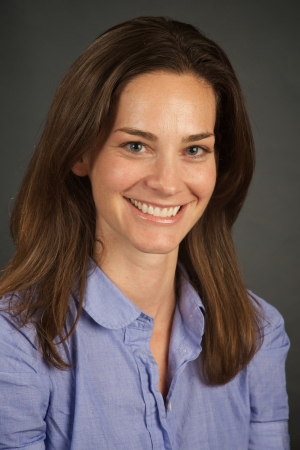Putnam-Hornstein to Examine Pregnancy among Foster Youth
October 08, 2012 / by Eric Lindberg- Research
A new research project led by Emily Putnam-Hornstein, an assistant professor with the USC School of Social Work, will link child welfare reports and birth records from throughout California to explore issues surrounding teen pregnancy among transition-age foster youth.
Funded by a $125,000 grant from the Conrad N. Hilton Foundation, the project will involve matching the records of all youth reported for maltreatment or placed in foster care between 1999 and 2010 to statewide birth records from the same time period. The overarching goal is to examine the prevalence of teen and early births among foster youth, explore maltreatment and foster care placement as risk factors for teen pregnancy, and study child maltreatment across generations.
“Hopefully these data will help us better understand what practices or policies are needed to best support these young women and improve outcomes for their children,” Putnam-Hornstein said.
By linking birth records and child welfare records for current and former foster youth, she will be able to establish a concrete figure for teen and early birth rates. Although prior research indicates the birth rate is higher for youth in foster care compared to their peers in the general population, these data will provide population-based estimates of the rate of maltreatment and prior foster care placements among teen mothers.
Although this linkage project focuses on youth in Los Angeles County—a particular area of interest for the Conrad N. Hilton Foundation and other stakeholders—statewide data will allow for comparisons with other regions.
Another facet of the project will center on the epidemiology of intergenerational maltreatment, Putnam-Hornstein said, including the rates at which children of current and former foster youth are reported for maltreatment compared to children whose young mothers have no history of child welfare involvement.
“This is another example of how cost-effective it is to utilize administrative data and the richness of the information that can be generated,” she said.
In addition to shedding light on complicated issues such as risk and protective factors related to teen births among maltreated youth and laying the groundwork for future research, Putnam-Hornstein is hopeful that the study will have a more immediate impact on the health and well-being of young parents in the foster care system.
“It will be interesting to see what the patterns of engagement in prenatal care look like,” she said. “If we find that large numbers of pregnant youth in foster care start prenatal care after the first trimester, that is something we might be able to do more about as a system in terms of identifying and supporting those women in accessing health care earlier.”
Putnam-Hornstein has unique access to statewide child welfare and birth records due to her research affiliation with the California Child Welfare Performance Indicators Project at the University of California, Berkeley, which has longstanding data-sharing agreements and collaborates closely with the California Department of Social Services.
She is working alongside coinvestigators Julie Cederbaum, an assistant professor with the USC School of Social Work, and Barbara Needell, who heads the Performance Indicators Project at UC Berkeley. Two social work master’s students at USC, Jaclyn Joyner and Kaycee Gilbert, who are interested in the topic of teen pregnancy and vulnerable youth, are also assisting with the project.
Once the data are linked, the research team plans to disseminate findings to the broader community, exploring ways in which this information might inform pregnancy prevention efforts, as well as new programs for parenting teens in the foster care system.
“It’s a first step,” Putnam-Hornstein said. “The next step will be exploring some of the effective programs that have been developed for young mothers to improve parenting. How might those need to be modified or tweaked for transition-age youth in foster care? What can we do to support these young parents to ensure the best possible outcomes for both these youth and their children?”
To reference the work of our faculty online, we ask that you directly quote their work where possible and attribute it to "FACULTY NAME, a professor in the USC Suzanne Dworak-Peck School of Social Work” (LINK: https://dworakpeck.usc.edu)
